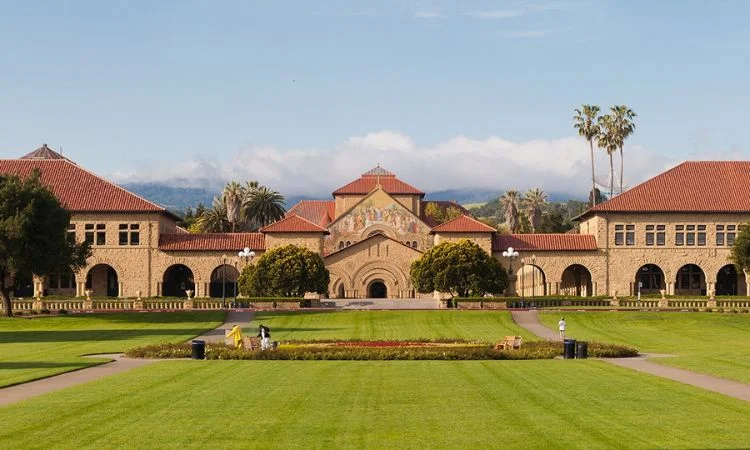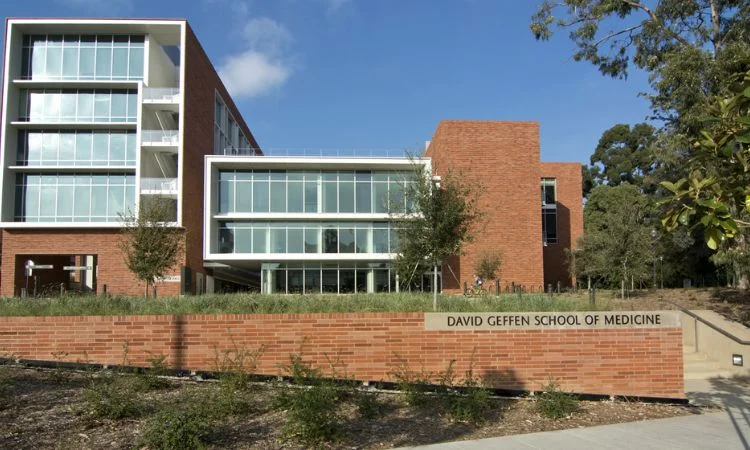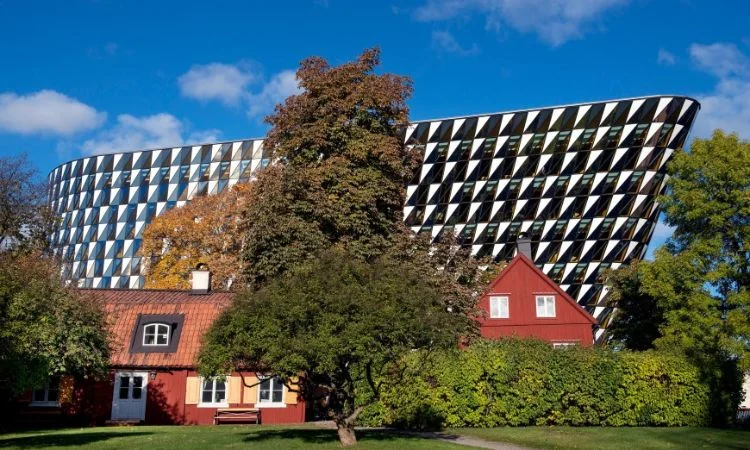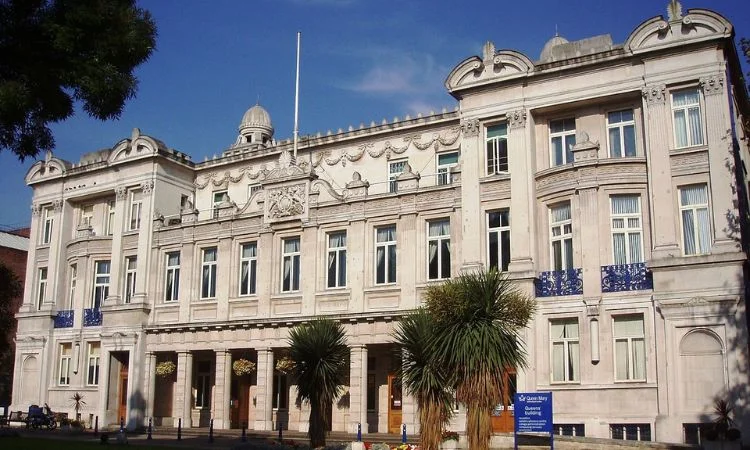Embarking on the journey to become a medical professional is no ordinary feat; it’s a transformative odyssey that requires not just determination but the right educational compass. In this era of advanced medical sciences, the choice of an institution plays a pivotal role in shaping the trajectory of one’s medical career. Embark on a fascinating exploration of the crème de la crème, the top medical colleges around the world, where education is not just a curriculum; it’s an expedition into excellence.
Here Below The List Of Top 12 medical College In The world :
Harvard University, United States

Founded in 1782, Harvard Medical School has distinguished itself as a foremost institution in the realm of medical education. Committed to the noble cause of mitigating human suffering, the medical health program at Harvard is designed to mold students into proficient leaders within the realms of both clinical and biomedical disciplines. The institution’s overarching mission and vision underscore its dedication to fostering an inclusive environment, catering to the diverse needs of humanity, and providing education of the highest caliber. Anchored in these fundamental principles, Harvard Medical School has rightfully earned its place as a global leader among the most esteemed medical institutions worldwide.
Average Tuition Fee: $65,203
University of Oxford, England

The University of Oxford’s School of Medicine provides a robust and comprehensive academic training program infused with a profound understanding of research fundamentals crucial to the medical field. Students are afforded the privilege of participating in a structured three-year pre-clinical stage, followed by an additional three years dedicated to clinical studies. The curriculum is thoughtfully designed to incorporate hands-on experiences within research laboratories throughout the Medical Science Division, thereby cultivating and refining students’ skills to enrich their educational pursuits. This steadfast dedication to academic excellence has firmly established the University of Oxford’s School of Medicine as a leading institution in the global landscape of medical education.
Average Tuition Fee: $49,991
Stanford University, California, United States

Stanford Medicine stands out as a preeminent institution within the international realm of medical education. Acknowledged as a trailblazer in the field, Stanford Medicine offers a comprehensive and forward-thinking research study program, equipping prospective medical leaders with the skills and resourcefulness necessary for success. Aligned with Stanford Healthcare and Stanford Children’s Health, the institution has received accolades for its exceptional contributions to child care, neurology, cardiology, and pregnancy care. These notable attributes have propelled Stanford Medicine to the forefront, solidifying its standing as a distinguished and globally renowned medical college.
Average Tuition Fee: $55,011
University of Cambridge – Medical College, Cambridge, United Kingdom

The Medical College at the University of Cambridge stands apart through its provision of two distinct and comprehensive medical programs: a standard course and a graduate course. The meticulously designed curriculum serves as a cornerstone for aspiring medical professionals, furnishing a robust framework for evidence-based, rigorous training, and hands-on practical experience. Over the course duration, students are afforded the opportunity to actively participate in research and project work, thereby enhancing the institution’s standing as one of the foremost global leaders in medical education.
Average Tuition Fee: $82,984
Johns Hopkins University – School of Medicine

Johns Hopkins University takes pride in adopting an integrated approach to teaching and learning, a philosophy that permeates its esteemed School of Medicine. As one of the world’s top medical colleges, the school offers an array of MD and doctorate programs, providing students with a flexible curriculum and comprehensive exposure to key concepts in the medical field. This commitment to excellence positions Johns Hopkins University School of Medicine among the elite institutions globally.
Average Tuition Fee: $58,000
University of California: David Geffen School of Medicine at UCLA

The David Geffen School of Medicine at UCLA stands as the youngest among the distinguished top-10 best medical schools globally. Positioned as an emerging pioneer in the field of medicine and biomedical sciences, the school is committed to delivering education through impactful community partnerships. Offering comprehensive programs in MD, postdoctoral, graduate, and residency studies, the institution is dedicated to fostering excellence and innovation in medical education.
Average Tuition Fee: $50,130
Yale University: Yale School of Medicine

Yale School of Medicine takes pride in being a forerunner in shaping physician-scientists, solidifying its position as one of the premier MBBS colleges worldwide. With a primary focus on elevating health innovation projects and advancing medicine through scientific discovery, this esteemed institution boasts nearly 11,000 faculty members. The compassionate, committed, and ceaselessly energetic faculty serves as an inspiration for students pursuing medical studies at Yale, thereby earning the institution a well-deserved spot among the best medical schools globally.
Average Tuition Fee: $64,024
University College London (UCL):

Founded in 1834 in the heart of London, University College London (UCL) boasts a rich history of nearly two centuries dedicated to shaping the future of medical professionals. UCL stands as a stalwart institution, closely aligned with seven major teaching hospitals renowned for their delivery of world-class medical education. The institution’s unwavering commitment to excellence is evidenced by the graduation of numerous academically distinguished professionals who have ascended to leadership roles within the field of medicine. UCL’s standing is further underscored by its exceptional academic reputation, fortified by a robust infrastructure, a cadre of dedicated students, and a faculty that undergoes rigorous training. These integral elements collectively position UCL as one of the foremost medical colleges on a global scale.
Average Tuition Fee: $50,149
Imperial College

Established in 1997, Imperial College is a distinguished institution that has garnered acclaim through the receipt of the Athena SWAN award, a testament to its steadfast commitment to recognizing and appreciating the contributions of women in the medical field. Imperial College’s medical school has cultivated robust connections with healthcare partners, placing a strong emphasis on collaborative approaches. The institution’s multidisciplinary collaborations extend seamlessly to faculties in engineering and natural sciences, further elevating its status as one of the world’s premier medical schools.
Average Tuition Fee: $50,149
Massachusetts Institute of Technology (MIT)

MIT, while not hosting a standalone medical school, actively engages in two collaborative programs with Harvard Medical School, namely the joint MD-PhD program and a health sciences degree. Through these integrated initiatives, MIT establishes a profound connection with renowned Boston area hospitals, fostering a collaborative and dynamic environment for medical education and research. This strategic collaboration positions MIT as a global leader in medical education, consistently recognized among the foremost medical colleges worldwide.
Average Tuition Fee: $64,10
Karolinska Institutet Solna- Sweden

Established in 1810-1968, Karolinska Institutet, also known as the Caroline Institute in English, is located in Solna, within the metropolitan area of Stockholm, Sweden. The institution is renowned for its commitment to health and medical sciences, exemplifying excellence in research and innovation. The Nobel Assembly at the Karolinska Institute is responsible for conferring the Nobel Prize in Physiology or Medicine, underscoring its global significance.
As of the 2021 QS World Ranking, Karolinska Institutet holds an esteemed position as the sixth-best university worldwide. The institution adopts a distinctive approach wherein faculty members allocate their time between conducting cutting-edge research and delivering high-quality education. This dual commitment ensures that both students and faculty remain well-informed about the latest advancements in the fields of physiology and medicine. Karolinska Institutet’s far-reaching reputation underscores its pivotal role in advancing knowledge and fostering excellence in the medical and health sciences.
Queen Mary University of London (QMUL)

Queen Mary University of London (QMUL), colloquially known as QM and formerly Queen Mary and Westfield College, stands as a distinguished public research institution situated in the heart of Mile End, East London, England. As an integral member of the esteemed University of London, it upholds a commitment to excellence in academia and research.
Presently, Queen Mary extends its reach across six strategically located campuses in East and Central London, encompassing Mile End, Whitechapel, Charterhouse Square, Ilford, Lincoln’s Inn Fields, and West Smithfield. Additionally, the university has cultivated an international presence with campuses in China, France, Greece, and Malta. Notably, the Mile End campus stands as the most expansive self-contained campus among London-based universities. As of the academic year 2018/19, the university boasts an enrollment of approximately 26,000 students.
Queen Mary is structured into three distinguished faculties, namely, the Faculty of Humanities and Social Sciences, the Faculty of Science and Engineering, and Barts and The London School of Medicine and Dentistry. Demonstrating its commitment to academic excellence, the university aligns itself with the Russell Group of prominent British research universities, the Association of Commonwealth Universities, and Universities UK.
Conclusion
In conclusion, each institution contributes distinct strengths to the medical education milieu, encompassing a dedicated emphasis on research and collaborative methodologies, as well as a steadfast commitment to inclusivity and community engagement. When contemplating the selection of a medical school, it is imperative to not only assess academic reputation but also scrutinize the program’s structure, underlying philosophy, and individual preferences, which may extend to considerations such as tuition costs.















